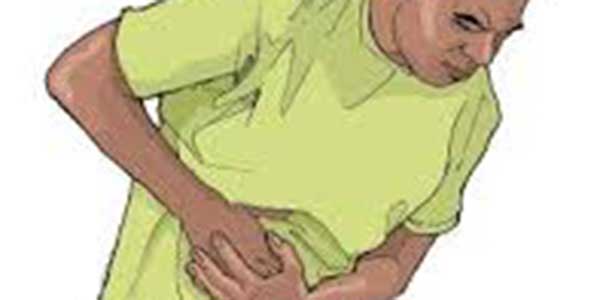
Understanding Diarrhoea and Vomiting:
Diarrhoea and vomiting are two of the most common and uncomfortable gastrointestinal issues that many of us have experienced at some point in life. Whether it’s the result of something we ate or a stomach bug going around, these symptoms can leave us feeling drained and unwell. In this blog post, we’ll dive into the causes, how you can prevent these unpleasant conditions, and explore homeopathic remedies that might provide relief.
What Causes Diarrhoea and Vomiting?
- Infections
The most common cause of diarrhoea and vomiting is infection. These can be viral, bacterial, or parasitic.- Viral infections: Gastroenteritis, often called the stomach flu, is usually caused by viruses like rotavirus or norovirus. These spread easily in communities, especially during winter.
- Bacterial infections: Eating contaminated food or water can expose you to bacteria like Salmonella or E. coli. This leads to food poisoning, which is often accompanied by nausea and diarrhoea.
- Parasitic infections: In certain areas, parasites like Giardia can cause long-lasting gastrointestinal issues, particularly in places with poor water sanitation.
- Food Intolerances and Allergies
For some, diarrhoea and vomiting are triggered by food sensitivities.- Lactose intolerance: Those who can’t properly digest dairy products may experience diarrhoea or nausea after consuming milk or cheese.
- Gluten intolerance: Gluten-sensitive individuals, particularly those with celiac disease, may have strong reactions like vomiting or diarrhoea after eating wheat or similar grains.
- Medication Side Effects
Certain medications can upset the digestive system.- Antibiotics: These can kill off helpful gut bacteria along with harmful bacteria, sometimes leading to diarrhoea.
- Chemotherapy: Patients undergoing cancer treatments often struggle with nausea and vomiting as a side effect of the drugs.
- Chronic Digestive Conditions
Conditions such as Irritable Bowel Syndrome (IBS) or Inflammatory Bowel Disease (IBD) can also cause recurrent diarrhoea and sometimes vomiting. These conditions are often chronic and require long-term management. - Toxins
Alcohol or ingestion of harmful chemicals can irritate the stomach lining, causing both vomiting and diarrhoea as the body tries to purge itself of the toxins.
How to Prevent Diarrhoea and Vomiting
Fortunately, there are several ways you can reduce your risk of suffering from diarrhoea and vomiting:
- Practice Good Hygiene
One of the most effective ways to prevent infection is by washing your hands frequently, especially after using the bathroom and before eating. This can reduce the spread of viruses and bacteria significantly. - Stay Safe with Food and Water
- Make sure your drinking water is clean, particularly when traveling in areas where waterborne diseases are common. Choose good quality bottled water or boiled water when in doubt.
- Ensure that food, especially meat and eggs, is cooked thoroughly, and avoid eating food that has been left out for too long. Food safety can go a long way in preventing foodborne illnesses.
- Avoid Known Triggers
If you know that certain foods (like dairy or gluten) cause issues, try to avoid them as much as possible. If you’re unsure whether food intolerances are causing your symptoms, a food diary can help pinpoint potential triggers.
Homeopathic Remedies for Diarrhoea and Vomiting
Many people turn to homeopathy for relief from gastrointestinal symptoms. Homeopathy is a natural approach that focuses on individualized remedies based on specific symptoms. Here are some popular remedies that might help with diarrhoea and vomiting:
- Arsenicum Album
This remedy is often used when diarrhoea and vomiting are caused by food poisoning, particularly if there is burning pain in the stomach and a sense of exhaustion. It’s useful when symptoms worsen after eating or drinking cold substances. - Nux Vomica
Nux Vomica is known for helping with symptoms of overindulgence in rich, spicy foods or alcohol. If your digestive issues are accompanied by nausea, irritability, and cramping, this remedy might be helpful. - Ipecacuanha
This is recommended for persistent vomiting that does not bring relief. It’s often used when there’s a feeling of a heavy stomach and a clean tongue, but vomiting continues. - Podophyllum
If you’re experiencing profuse, watery diarrhoea that tends to come in the morning, Podophyllum might be beneficial. It’s particularly helpful for those who feel gurgling or cramping in the abdomen. - Veratrum Album
This remedy is suitable for extreme cases of vomiting and diarrhoea, especially when there is cold sweat and dehydration. It’s ideal for individuals who are vomiting immediately after drinking or feel incredibly weak. - Chamomilla
Chamomilla is often used for children (and adults) who experience diarrhoea or vomiting during times of emotional upset or teething. It’s particularly helpful for irritable and restless individuals. - China Officinalis
If diarrhoea has led to extreme weakness or dehydration, this remedy can help. It’s useful for bloating and gas and provides relief after passing stool.
Stay healthy, and take care of your gut!
If you are suffering from long standing gut related issues, try the natural way to heal BOOK A FREE DISCOVERY CALL TODAY
